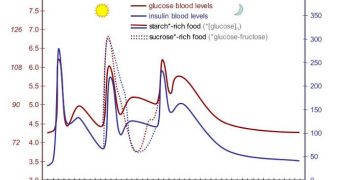A group of investigators from the Joslin Diabetes Center (JDC) announces the discovery of a mechanism that causes excessive hemorrhage following stroke, in patients who suffer from diabetes.
For a long time, the two conditions have been tied together, in the sense that experts noticed a worsening in stroke effects in people who had a history of diabetes. The main complication was that patients with diabetes tended to have more abundant intracerebral hemorrhage.
Bleeding in the brain is a very serious condition, which can often have lethal effects. Furthermore, healthcare experts don't yet have an effective means of treating this occurrence at this point.
Scientists say that this is one of the main reasons why strokes cause such high levels of mortality and adult disability in their victims. People who experience this have a high chance of remaining paralyzed for life, or worse, Science Blog reports.
The JDC team says that it managed to identify a critically-important player in the interaction between stroke and diabetes, and adds that acting on this lead could result in fewer deaths caused by the correlation. This applies for patients suffering from diabetes of hyperglycemia.
“Given the prevalence of strokes and the damage they inflict, these findings are exciting because they suggest the possibility that rapid control of blood sugar levels may provide an opportunity to reduce intracerebral hemorrhage, which is a clinical situation that has very limited treatment options,” explains Dr. Edward Feener, PhD.
“This work could have broad implications since about half of patients with acute hemorrhagic stroke have hyperglycemia, whether or not they have pre-existing diabetes,” adds the expert, who is based at the Harvard Medical School.
The HMS associate professor of medicine is also a Joslin investigator. He is also the lead author of a new study detailing the findings, which appears in the latest online issue of the esteemed scientific journal Nature Medicine.
Scientists from the Beth Israel Deaconess Medical Center and ActiveSite Pharmaceuticals were also involved in the investigation, which was funded by the US National Institutes of Health (NIH) and the American Heart Association (AHA).
These conclusions underlie a new direction of research that experts could take in mitigating the effects of stroke on the general population. Targeting the blood sugar levels of post-stroke patients apparently improves outcomes, so this is an area definitely worth exploring, scientists say.

 14 DAY TRIAL //
14 DAY TRIAL //